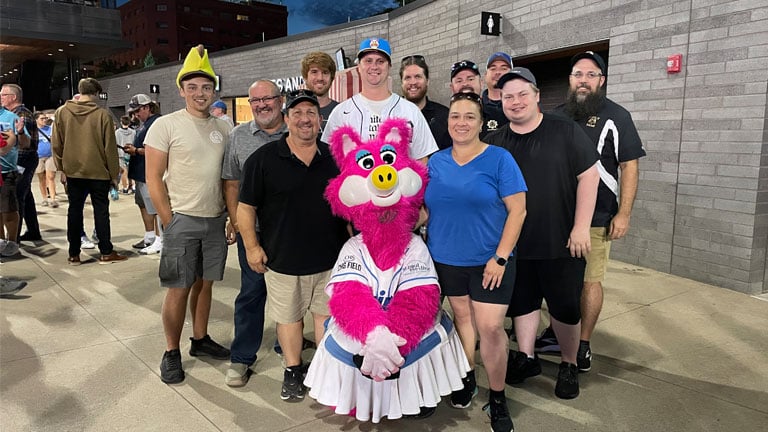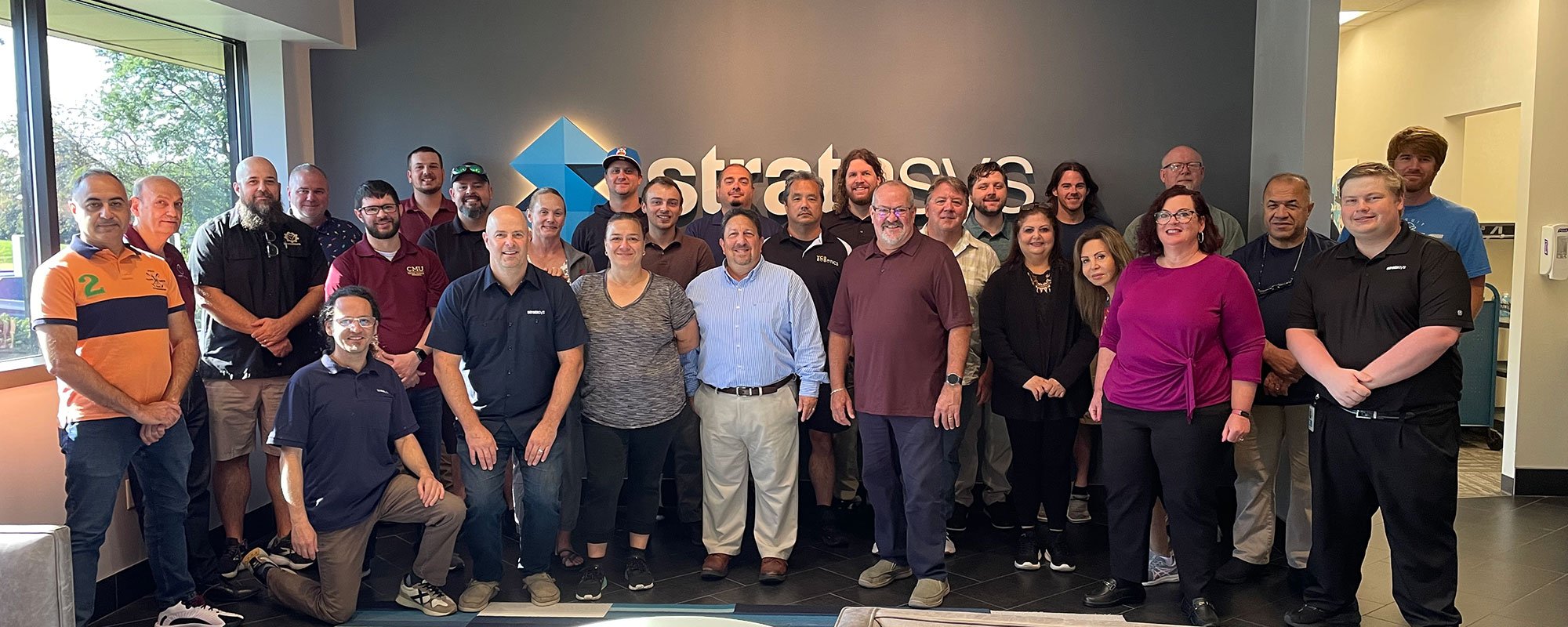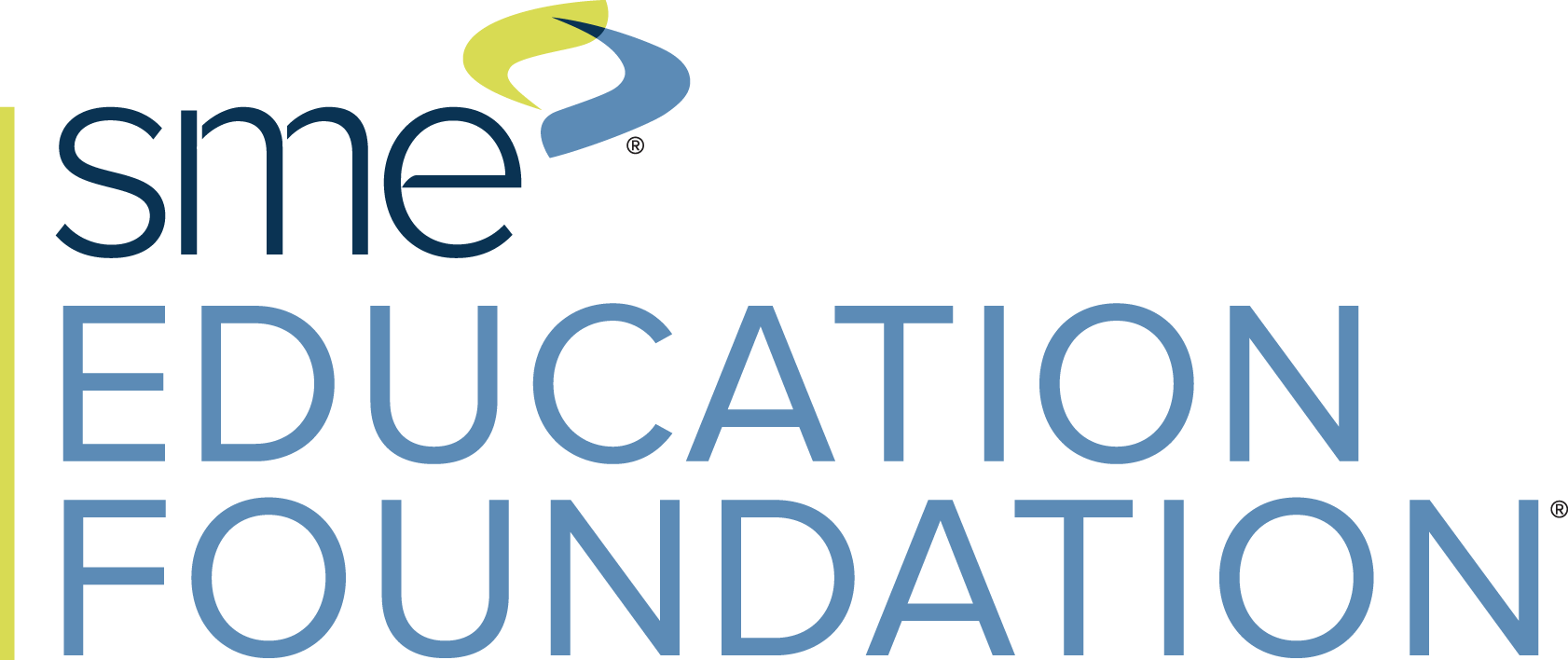 Stratasys went above and beyond with its preparation of SME PRIME® (Partnership Response in Manufacturing Education) teachers in August. Not only did the company provide 25 teachers with complimentary instruction and lunch over 2-1/2 days of training at Stratasys headquarters in Eden Prairie, Minnesota, it provided them with tickets to a St. Paul Saints baseball game. It also gave each teacher 25 “Saints Bucks” — worth $25 — that they could use on dinner or souvenirs at the ballpark.
Stratasys went above and beyond with its preparation of SME PRIME® (Partnership Response in Manufacturing Education) teachers in August. Not only did the company provide 25 teachers with complimentary instruction and lunch over 2-1/2 days of training at Stratasys headquarters in Eden Prairie, Minnesota, it provided them with tickets to a St. Paul Saints baseball game. It also gave each teacher 25 “Saints Bucks” — worth $25 — that they could use on dinner or souvenirs at the ballpark.
“Every SME PRIME school in the past 2-1/2 years has had the ability to go through what we call knowledge transfer training, where we invite instructors to come to Stratasys to dive deep into technology,” says Jesse Roitenberg, national education sales manager with Stratasys. “We talk about applications, materials and segments, and then we dive into the equipment itself — and really get these instructors upskilled to talk intelligently about how the technology is used.”
With the addition of 17 new SME PRIME schools in 2024, the number of SME PRIME teachers attending the professional development event more than doubled. Stratasys responded to the SME PRIME program growth by bringing in an additional instructor to ensure all teachers had personal attention. When training ended, the teachers took a 110-question exam about additive manufacturing through NOCTI. The exam was offered as a take-home option for the first time; however, nine teachers opted to take the exam in person. All nine passed on their first attempt. Passage of the NOCTI exam enables teachers to offer students the ability to earn an Industry Recognized Credential (IRC) in additive manufacturing, attesting to the students’ knowledge of additive manufacturing and adding to their employment marketability.
In addition to covering additive manufacturing concepts in detail, the course also provided teachers with a comparison to traditional subtractive manufacturing. “We really want to teach people when to 3D print and when not to 3D print,” says Roitenberg. “It truly becomes a skill. People are leaning on 3D printing for stuff that should be done ‘subtractively,’ or in a traditional process such as injection mold.”
Describing the recent group of trainees as a good mix, Roitenberg says they hailed from Michigan, Illinois and Georgia. “What’s cool about that is that they become a little network of bouncing ideas off of each other,” he notes. “They realize they don’t have to reinvent the wheel; they can lean on each other. They really build a nice community.”
Summing up the feedback he’s received from teachers attending the training, Roitenberg says the remarks are always, “Wow, I didn’t realize I could use it this way. Wow, I’m excited, I’m going to go talk to our local industry and see what they’re doing; see if we can do trainings for them. So it’s expanding their horizons of who their audience is, who they can work with at the schools and who they can work with in the community — which gives them a much better understanding of why these skills are important. It’s a stronger ownership when they go through this.”
Advancing opportunities for educational engagement with regional manufacturing is one of the outcomes encouraged by an SME PRIME program. Professional development experiences offering localized context enhance opportunities for SME PRIME schools to inspire and prepare students for the world of employment within manufacturing and engineering.
 Stratasys’ teacher training is one of many ongoing collaborations between the additive manufacturing company and the SME Education Foundation, which oversees SME PRIME. The company was instrumental in working with the Foundation to develop the additive manufacturing competition segment at SkillsUSA, in both statewide and nationwide championships. Stratasys is also actively involved in Bright Minds Student Summits, providing materials, delivering keynote presentations and more.
Stratasys’ teacher training is one of many ongoing collaborations between the additive manufacturing company and the SME Education Foundation, which oversees SME PRIME. The company was instrumental in working with the Foundation to develop the additive manufacturing competition segment at SkillsUSA, in both statewide and nationwide championships. Stratasys is also actively involved in Bright Minds Student Summits, providing materials, delivering keynote presentations and more.
According to Roitenberg, the teacher training is particularly exciting because it shows instructors’ interest in additive manufacturing. “Their knowledge and confidence when they come in, compared to when they leave, is significant, and it makes for a better experience for everyone involved — especially the students that they’re going to go teach.”
SME PRIME® partners private industry with academia to build custom manufacturing and engineering programs in high schools across the country, providing equipment, curriculum, teacher training, student scholarships, and funding for extracurricular activities and program sustainability. SME PRIME is tailored to meet the needs of local manufacturers and is aligned with over 40 industry recognized certifications. SME PRIME is located in 110 schools across 23 states, serving 10,000 students, and 91% of SME PRIME seniors pursue manufacturing post-graduation.
